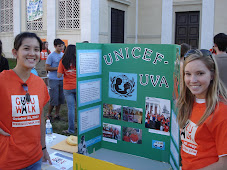| By David Loyn International development correspondent |
Economic growth does not necessarily translate into improvements in child mortality, major new research suggests. 
Ten million children still die every year before their fifth birthday, 99% of them in the developing world, according to Save the Children.
A study comparing economic performance with child mortality reveals that some countries have not translated wealth into improvements across society.
Survival is too often just a "lottery", said Save the Children's David Mepham.
He said that even the poorest countries can cut child mortality by following simple policies, but at the moment "a child's chance of making it to its fifth birthday depends on the country or community it is born into".
Lagging behind
Angola comes at the bottom of a new "Wealth and Survival" league table drawn up by the UN Development Programme (UNDP).
![]()
There are few countries in the world where there are such stark wealth contrasts as there are between the wealth of oil-rich coastal strip around the Angolan capital Luanda, and the war-ravaged interior.
UNDP statisticians calculate that more than half of the babies who die in Angola could be saved were the country to spread its wealth more fairly.
Some of the poorest countries in the world - Nepal, Malawi, Tanzania and Bangladesh - are among the top ten performers in this index, showing success in cutting mortality.
But India, the fastest growing economy in South Asia, lags well behind its poorer neighbors.
Some states in India, including Orissa, Rajasthan and Bihar, have child and maternal mortality rates that are among the worst in the world.
Limited bonuses
On a visit to rural Orissa, it was not difficult to see why child survival is a matter of chance.
It can take days for villagers to reach medical help, and travel may involve boats or auto-rickshaws.
Dr Baharudat Mishra said that although the government did give a bonus to doctors to work in the outlying regions, it is not enough to entice many, especially compared to the salaries that can be earned in the new technology sector.
"If a doctor does not have a residence with water supply or electricity, and there is no vehicle to reach the affected villages, then naturally obstructions will come up," he said.
"The figures for child mortality in India are shocking," said Shireen Miller, from Save the Children India.
"They are close to sub-Saharan Africa, and one does ask that if we can make such rapid development economically then why can we not do the same socially?
"And in fact are we actually a developed country if we still have hundreds of thousands of babies dying and starving?"
'Wake-up call'
But government health officials in Orissa blamed ancient customs and practices in the villages, such as starving babies at birth and giving them cold baths, for the poor mortality rates.
They said that where they have been able to train traditional birth attendants, many more babies and mothers do survive.
Without significant improvements, the world will not be able to fulfil one of the key Millennium Development Goals of improving child mortality in time for the target date of 2015.
UK Prime Minister Gordon Brown said the Save the Children report is a development "wake-up call", and that the world "can and must do more".http://news.bbc.co.uk/2/hi/africa/7249933.stm




